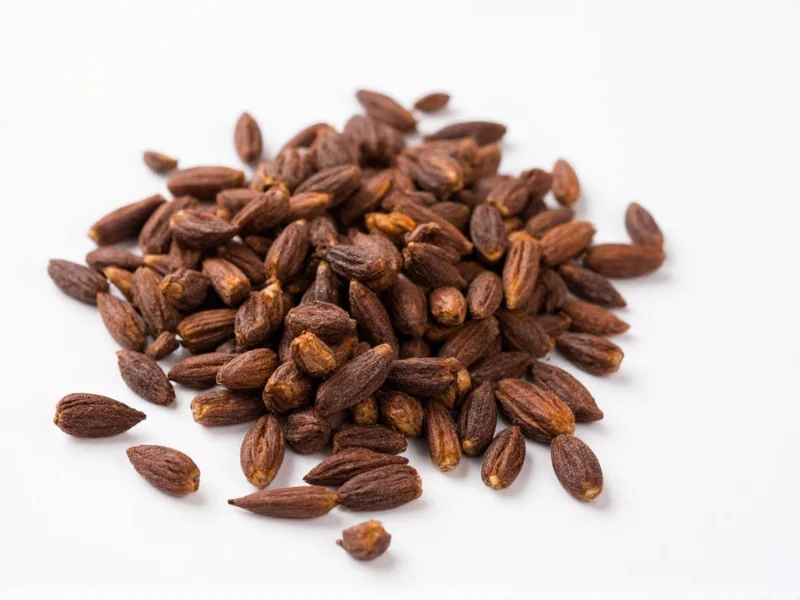When you're mid-recipe and realize you're out of cloves, reaching for allspice is a practical kitchen solution. This common spice substitution works because allspice actually contains clove notes within its complex flavor profile. Understanding when and how to make this swap can save your dish while maintaining culinary integrity.
Understanding the Flavor Connection Between Allspice and Cloves
Allspice earned its name because early European explorers thought it tasted like a combination of several spices, including cloves, cinnamon, and nutmeg. The key compound eugenol gives both allspice and cloves their distinctive warm, slightly sweet, and pungent flavor. This shared chemical component makes allspice the closest single-spice substitute for cloves.
However, allspice contains additional flavor compounds that create its more complex profile. While cloves offer a singular, intense flavor, allspice delivers a more rounded taste experience with hints of:
- Cinnamon (warm, sweet notes)
- Nutmeg (earthy, slightly nutty)
- Pepper (subtle heat)
Practical Substitution Guidelines: Allspice for Cloves Ratio
When substituting allspice for cloves, follow these practical guidelines based on recipe type and desired outcome:
| Recipe Type | Allspice:Clove Ratio | Notes |
|---|---|---|
| Robust dishes (stews, braises) | 1:1 | Full substitution works well as other flavors complement the allspice |
| Baking (cakes, cookies) | 3/4:1 | Slightly reduce allspice to prevent overwhelming other spices |
| Delicate dishes (custards, light sauces) | 1/2:1 | Use half the amount to maintain subtle flavor balance |
| Pickling solutions | 2/3:1 | Allspice works well but may create slightly different flavor development |
When Allspice Works Best as a Clove Substitute
Certain recipes handle the allspice-for-cloves substitution better than others. Understanding these contexts helps you make informed decisions in the kitchen:
Ideal Applications for Allspice Instead of Cloves
- Meat dishes: Pot roasts, beef stews, and braised short ribs benefit from allspice's complexity
- Caribbean and Middle Eastern recipes: Many traditional dishes already use allspice
- Apple-based desserts: Allspice complements apple flavors beautifully in pies and crisps
- Chili and tomato-based sauces: The additional spice notes enhance complexity
Situations Where Substitution May Be Problematic
- Ham glazes: Pure clove flavor is traditional and distinctive
- Whole clove applications: Like studded onions or oranges for garnish
- Delicate custards or puddings: Where subtle clove flavor is essential
- Traditional mulled wine recipes: Clove provides a specific aromatic note
Alternative Substitutes When Allspice Isn't Available
If you don't have allspice either, consider these alternative approaches for replacing cloves in your recipes:
Combination Substitutes
Create a custom blend that mimics clove flavor using spices you likely have on hand:
- Clove flavor enhancer: 1/2 teaspoon cinnamon + 1/4 teaspoon nutmeg + tiny pinch of ground cloves (if you have even a little)
- For baking: 3/4 teaspoon cinnamon + 1/4 teaspoon cardamom
- For savory dishes: 1/2 teaspoon cinnamon + 1/4 teaspoon nutmeg + 1/8 teaspoon black pepper
Other Single-Spice Options
When you need a one-to-one replacement:
- Nutmeg: Use 3/4 the amount of cloves called for (stronger in small quantities)
- Cinnamon: Use equal amount but expect sweeter, less pungent results
- Star anise: Use 1/2 the amount for similar licorice notes (best in braises)
Professional Tips for Successful Spice Substitution
Experienced chefs recommend these techniques when substituting allspice for cloves to ensure recipe success:
- Add gradually: Start with 3/4 the recommended substitution amount, then taste and adjust
- Consider timing: Add allspice later in cooking than you would cloves for more pronounced flavor
- Balance acidity: A small splash of vinegar or citrus can help balance allspice's complexity
- Texture matters: For recipes calling for whole cloves, use whole allspice berries for similar visual effect
- Storage note: Ground allspice loses potency faster than whole cloves—check freshness before substituting
Understanding Spice Chemistry for Better Substitutions
The science behind spice substitution reveals why allspice works as a cloves replacement. Both spices contain significant amounts of eugenol (60-90% in cloves, 3-12% in allspice), which creates that characteristic warm, spicy aroma. However, allspice also contains:
- 5-15% caryophyllene (also found in black pepper)
- 2-7% terpenes (citrus notes)
- 1-4% eugenol acetate (softer clove notes)
This chemical composition explains why allspice provides a more rounded flavor profile compared to the singular intensity of cloves. When substituting allspice for ground cloves in baking, remember that the additional compounds may interact differently with other ingredients, potentially affecting the final texture and moisture content of your baked goods.
Recipe-Specific Substitution Advice
Certain beloved recipes have specific considerations when substituting allspice for cloves:
Apple Pie and Other Fruit Desserts
When making allspice instead of cloves in apple pie, use a 3:4 ratio (3/4 teaspoon allspice for every 1 teaspoon cloves). The natural sweetness of allspice complements apples beautifully, but too much can overpower the delicate fruit flavor. For pumpkin pie, consider reducing other warm spices slightly to maintain balance.
Meat Rubs and Marinades
In barbecue rubs or meat marinades, allspice makes an excellent 1:1 substitute for cloves. The additional complexity actually enhances the flavor profile of slow-cooked meats. For allspice substitute for cloves in ham glaze, try using 3/4 the amount of allspice and adding a small pinch of black pepper to mimic cloves' slight heat.
Hot Beverages and Mulled Wines
When substituting allspice for cloves in mulled wine or cider, use whole allspice berries instead of ground for easier removal. The flavor will be slightly different but equally warming. For the best results with allspice instead of cloves in chai tea, combine allspice with additional cardamom to approximate the traditional spice balance.











 浙公网安备
33010002000092号
浙公网安备
33010002000092号 浙B2-20120091-4
浙B2-20120091-4